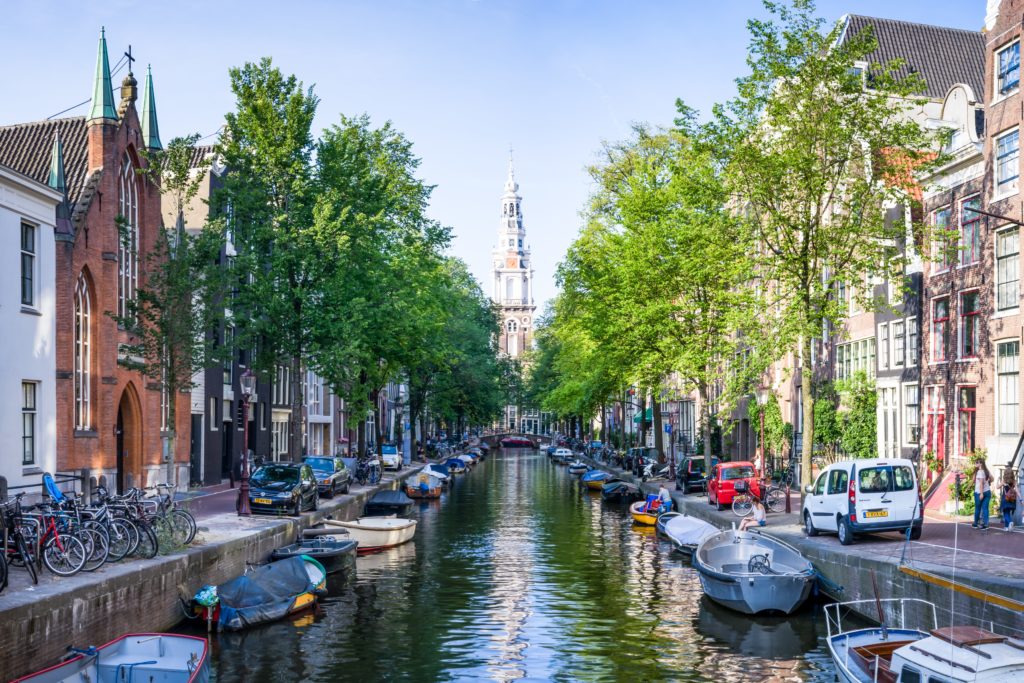
Holland is one of the fastest-growing countries in Europe. Over the past decade, the country’s economy has taken a worthy sixth position among the EU countries in terms of growth rate and size. Development in the country is proportional, and all spheres are growing, from small business to industry.
How does a startup visa work in the Netherlands?
The system of obtaining a visa and the first year of the project in the Netherlands are built in such a way that startups create ideal conditions for the development of innovative products. This implies both professional expertise and excellent tax and investment prospects.
To obtain a start-up visa, you need to fulfill general and specific requirements before applying to the Netherlands Immigration and Naturalization Service (hereinafter – IND). Having received a startup visa, i.e. essentially a residence permit, you can move to the Netherlands and start developing your business legally, taking full advantage of the startup community of this interesting country.
According to the conditions of a startup visa, immigrants working on their startup in the Netherlands must do so under the supervision of an experienced mentor (facilitator). This mentoring system is designed to realistically support and develop new businesses, so you have a much better chance of growing into a mature enterprise that benefits not only the entrepreneur but also the Dutch economy.
Institutional innovation experts authorized by the state act as mentors, namely business accelerators, incubators, and research and entrepreneurial hubs represented by their experienced founders, consultants, and employees.
The Facilitator
Their role is reduced not only to the assessment of your project but also to the subsequent work with your project. Therefore, it is very important to find a facilitator who would be most useful to your project.
Moreover, in a year, the same organization will have to issue you an opinion, based on which a startup visa will be closed for you, or you will apply for a residence permit already as an entrepreneur. An entrepreneur’s residence permit is issued for 2 years and can be extended further for another 2 years. Thus, after 5 years, you will have the right to become a full-fledged Dutch citizen.
Therefore, working with a facilitator has many perspectives in order not to treat it formally, but to involve them in the work on your project. Moreover, the list of facilitators includes more than 30 institutions, among which you can find a lot of highly professional expertise and connections for the development of your project.
Besides, many facilitators subsequently become the first investors in promising startups. Although the scale of investments in Holland itself is not as impressive as in the US or the UK, at the initial stage, mentors can raise six-figure sums in the Netherlands to bring the startup to the first mass sales.
However, even before the first impressive results, no one forbids raising funds in any country in the world. The only question is the success of these studies without appropriate confirmation from clients, in the form of a steady cash flow.
The assessment takes place according to three criteria:

Personal experience. A category that assesses the level of education and skills, knowledge of Dutch and other languages, consistency, work experience.
Business plan. This category assesses the business itself: its promotion and promotion, opportunities and risks, company structure, and activities.
The value of activities for the economy. This is perhaps the most important category. Here it is assessed how useful the activity will be for the country itself (creation of new jobs, the prospects, and efficiency of goods/services, innovativeness).
How can you prove that your product or service is innovative?
To be eligible for a visa, applicants must prove that their product or service is innovative in the Netherlands. To do this, one of the following three conditions must be met:
- the service or product is new in the Netherlands;
- business includes new technologies for production, distribution, or marketing;
- business involves a new organizational or procedural approach.
There are also additional aspects that can help define a startup as innovative and include the following characteristics:
- these are new technologies;
- bears social responsibility;
- there is an original approach to energy saving;
- opens up social innovation and smart adaptations for cross-industry applications.
Pros and cons of the program:

Pros:
- Only those whose projects will bring real benefits to the Dutch economy will be able to obtain a residence permit for an entrepreneur.
- Along with the applicant, his family members can move to Europe.
- To obtain a residence permit for an entrepreneur, it is enough to score 30 points for each criterion or 45 points in one of the criteria “business plan” or “personal experience”.
- The application is considered for 3 months (in some cases, 2-4 weeks).
- To confirm information about a startup, investors, and co-founders, it is enough to provide general information posted about them on the Internet (for example, a page on LinkedIn).
- The residence permit is issued for 2 years with the right of extension.
Cons:
- To obtain the status, startups need to obtain the approval of a facilitator (an innovation expert assessing the potential of a startup), have seed funding, and an agreement with a Dutch company that will act as a contractor for the project.
- The project should benefit the Dutch economy.
- The need to collect a minimum number of points.
- In some cases, you will first need to apply for a startup visa, and only after a year, you can get a residence permit status.


